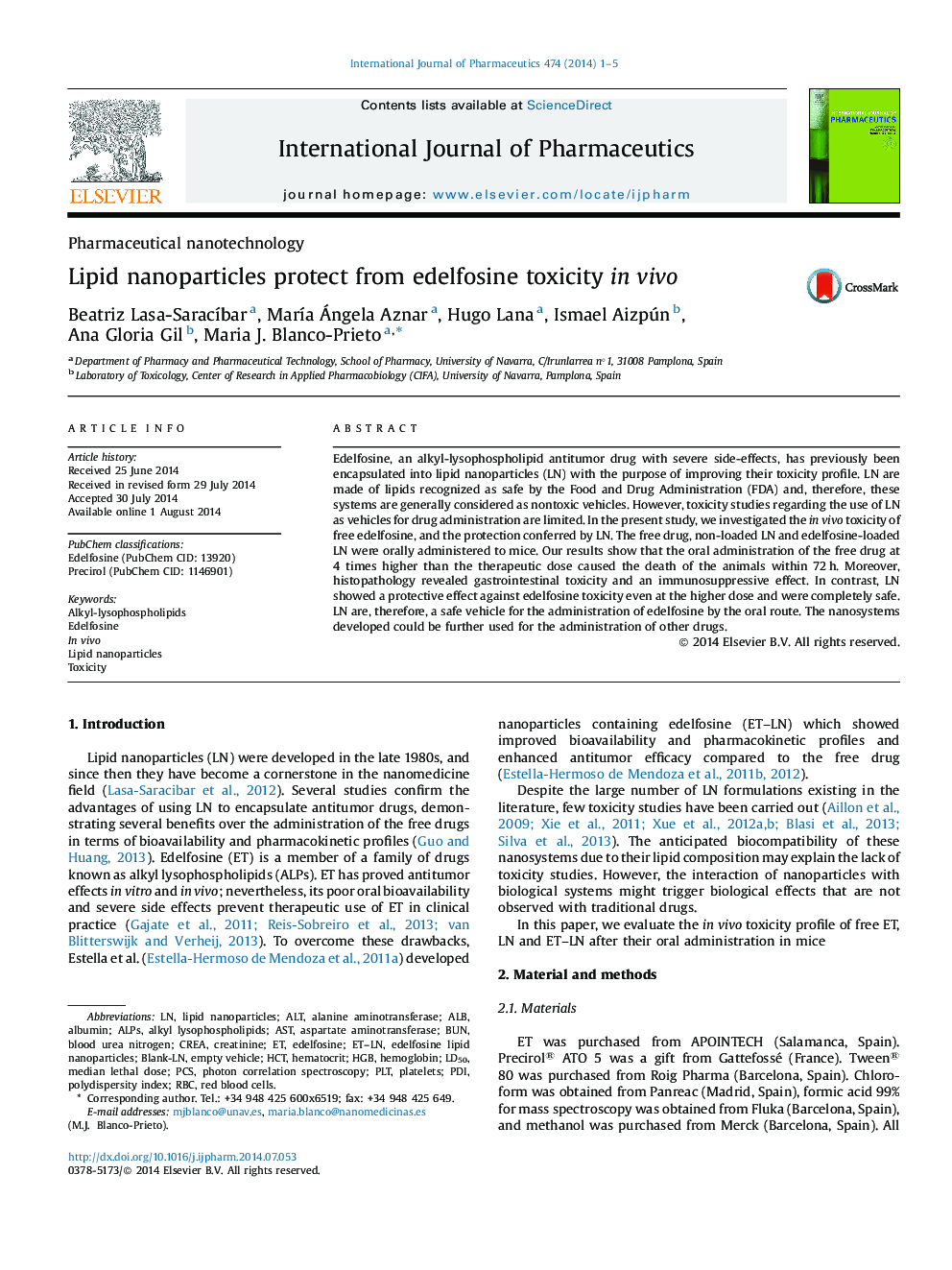| Article ID | Journal | Published Year | Pages | File Type |
|---|---|---|---|---|
| 2501800 | International Journal of Pharmaceutics | 2014 | 5 Pages |
Edelfosine, an alkyl-lysophospholipid antitumor drug with severe side-effects, has previously been encapsulated into lipid nanoparticles (LN) with the purpose of improving their toxicity profile. LN are made of lipids recognized as safe by the Food and Drug Administration (FDA) and, therefore, these systems are generally considered as nontoxic vehicles. However, toxicity studies regarding the use of LN as vehicles for drug administration are limited. In the present study, we investigated the in vivo toxicity of free edelfosine, and the protection conferred by LN. The free drug, non-loaded LN and edelfosine-loaded LN were orally administered to mice. Our results show that the oral administration of the free drug at 4 times higher than the therapeutic dose caused the death of the animals within 72 h. Moreover, histopathology revealed gastrointestinal toxicity and an immunosuppressive effect. In contrast, LN showed a protective effect against edelfosine toxicity even at the higher dose and were completely safe. LN are, therefore, a safe vehicle for the administration of edelfosine by the oral route. The nanosystems developed could be further used for the administration of other drugs.
Graphical abstractFigure optionsDownload full-size imageDownload high-quality image (222 K)Download as PowerPoint slide
